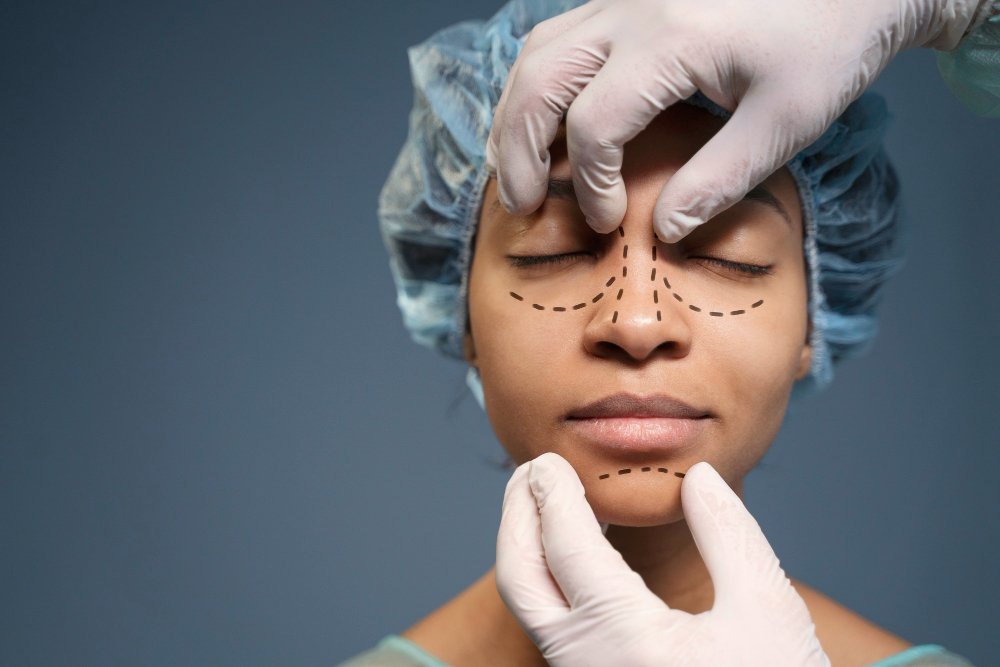Treatment Overview
Extended Chin Implant surgery is an advanced facial contouring procedure that enhances not only the projection of the chin but also its length and shape to create a more defined and harmonious lower face profile. Unlike standard chin implants, extended implants cover a larger surface area of the chin and sometimes the jawline, providing a stronger, more sculpted appearance.
South Korea is globally recognized for its expertise in this procedure, combining meticulous surgical techniques with custom implant designs to deliver natural and long-lasting results.
Purpose & Benefits
The procedure improves chin projection, length, and contour, enhancing overall facial balance. It is particularly beneficial for patients with a short or weak chin who desire a more prominent jawline and improved profile. Extended implants provide permanent structural support, boost self-confidence, and can help balance other facial features such as the nose and cheekbones. The surgery uses biocompatible materials and is designed to minimize scarring and complications.
Ideal Candidates
Ideal candidates are individuals with a small, recessed, or short chin who seek permanent enhancement of chin shape and projection. Those with disproportionate lower face profiles or imbalance between the chin and other facial features benefit greatly. Patients should be in good health, have realistic expectations, and no contraindications for surgery.
Possible Risks & Complications
Risks include typical surgical side effects such as swelling, bruising, numbness, and infection. Implant displacement or asymmetry can occur but is rare when performed by experienced surgeons. Scar formation is generally minimal and well concealed. Allergic reactions to implant materials are extremely rare. Occasionally, revision surgery may be necessary for adjustments.
Surgical Techniques Used
Surgeons use intraoral or submental incisions to place the implant. Extended chin implants are custom-shaped or pre-molded silicone or Medpor devices that cover a broader area than traditional implants. Surgeons create a precise pocket over the chin bone and secure the implant with sutures or screws to prevent movement. Layered closure techniques reduce visible scarring.
Recovery & Aftercare
Recovery generally involves mild to moderate swelling and bruising lasting up to two weeks. Patients should adhere to soft diet recommendations initially and avoid strenuous activities for 4–6 weeks. Good oral hygiene is essential if intraoral incisions are used. Follow-up appointments ensure proper healing and implant stability. Most patients resume normal activities within 7–10 days.
Results & Longevity
Results are immediate with enhanced chin projection, length, and contour. Once fully healed, the results are permanent. The implant provides durable support, improving facial harmony and jawline definition. Scars typically fade over time, and the natural appearance is maintained long-term.
Treatment Process in Korea
Patients start with a consultation, either in person or online, to evaluate facial structure and discuss goals. Detailed 3D imaging and simulation help select or customize the implant shape and size. On surgery day, under general anesthesia or sedation, the surgeon performs the procedure through minimal incisions, carefully places and secures the extended implant, then closes the incisions meticulously. Postoperative care instructions are provided, and patients return for follow-up visits to monitor recovery. Korean clinics often offer comprehensive support services for international patients, including language assistance and airport transfers.
Korea is a preferred destination due to its high surgical expertise, advanced implant technology, rigorous safety standards, and patient-centered care. The country’s competitive pricing and excellent aesthetic outcomes attract patients worldwide.
Cost Range
The cost of Extended Chin Implant surgery in Korea generally ranges from ₩5,000,000 to ₩12,000,000 KRW (approximately $3,800 to $9,000 USD), depending on the complexity, implant material, surgeon experience, anesthesia, and facility fees.
| Service Component | Cost Range (KRW) | Approx. USD |
|---|---|---|
| Consultation & Imaging | ₩200,000 – ₩600,000 | $150 – $450 |
| Surgical Fee | ₩3,500,000 – ₩8,000,000 | $2,600 – $6,000 |
| Anesthesia & Facility Fees | ₩800,000 – ₩1,500,000 | $600 – $1,130 |
| Postoperative Care | ₩300,000 – ₩600,000 | $225 – $450 |
Popular Clinics in Korea
- Banobagi Plastic Surgery: Renowned for custom facial implants and natural outcomes.
- ID Hospital: Experts in 3D planning and extended implant procedures.
- JW Plastic Surgery: Offers personalized implant designs for facial harmony.
- The Plus Plastic Surgery: Focuses on minimally invasive techniques and patient comfort.
- View Plastic Surgery: Advanced technology and expert surgical care.




